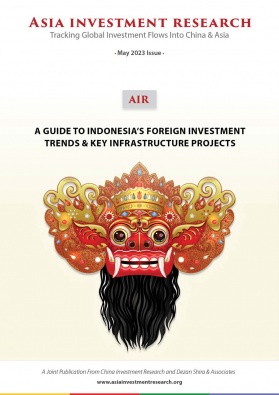A Guide to Corporate Income Tax in Indonesia
The corporate income tax rate in Indonesia is set at 22 percent for the 2023 fiscal year. The regime is governed by the Harmonized Tax Law, which has overhauled the country’s tax structure.
The Harmonized Tax Law (HTL) or Law No. 7/2021 has overhauled Indonesia’s tax structure.
Changes include an increase in the value-added tax (VAT) rate, a new carbon tax, scrapped plans to reduce the CIT rate, and changes to the topline personal income tax (PIT) rates.
Corporate income tax is set at a basic rate of 22 percent for the 2023 fiscal year.
Corporate tax incentives in Indonesia
Entities that pay corporate income tax in Indonesia can receive certain tax facilities based on certain conditions:
- Companies that are listed on the stock exchange that offer the minimum requirement of 40 percent of total share capital are subjected to a three percent tax cut from the standard rate.
- Companies that have an annual turnover of 50 billion rupiah (US$3.5 million) are eligible for a 50 percent tax cut from the standard rate, which is imposed proportionally on the part of the gross turnover of up to 4.8 billion rupiah (US$336,000).
- Companies with gross turnover of no more than 4.8 billion rupiah (US$336,000) are subject to a 0.5 percent tax of total turnover.
Tax residency
A company is treated as a resident in Indonesia if it is incorporated and conducts business in the country. A foreign company conducting business through a permanent establishment will be subject to the same tax rates as a resident company. A non-resident company is incorporated overseas but generates revenue from Indonesia.
Tax payments and deadlines
Resident taxpayers must pay their tax liabilities either by direct payments, third party withholdings, or through a combination of both.
As mentioned, the CIT rate is 22 percent for 2023. The deadline for the annual corporate tax payment is on the fourth month after the financial year-end. Furthermore, income tax returns must be filed by the end of the fourth month after the end of the company’s reported tax year.
Tax incentives
Companies that invest a certain amount in one of the 246 business lines that are deemed a ‘priority sector’ by the government will be afforded fiscal and non-fiscal incentives.
Fiscal incentives include a 50 percent corporate income tax reduction for investments between 100 billion rupiah (US$6.6 million) and 500 billion rupiah (US$33.3 million) for a period of five years and 100 percent CIT reduction for investments over 500 billion rupiah (US$33.3 million) for a period between five and 20 years.
In addition, there are tax allowances available in the form of a 30 percent reduction in the taxable income on the total investment for six years, a special withholding tax rate on dividends of 10 percent, and tax losses carried forward for up to 10 years.
|
Examples of Priority Business Sectors and Their Incentives |
|
|
Business line |
Incentive type |
|
Textile and garment industry |
Tax allowance and investment allowance |
|
Pharmaceutical industry |
Tax allowance |
|
Digital economy (hosting, data processing etc.) |
Tax holiday |
|
Geothermal (exploring and drilling) |
Tax allowance |
|
Cooking palm oil industry |
Tax allowance |
|
Iron and steel industry |
Tax allowance |
|
Automotive industry |
Tax allowance |
|
Oil and gas refinery |
Tax holiday |
|
Cosmetics industry |
Tax allowance |
|
Coal gasification |
Tax allowance |
To classify as a priority sector, business enterprises must meet the following criteria:
- Must be labor intensive;
- Must be capital intensive;
- Must be part of a national project/program;
- Must be export-oriented;
- Must involve a pioneer industry (renewables, oil refining, metals, etc.);
- Must utilize advanced technologies; and
- Must implement research and development activities.
Deductible expenses
As part of the CIT calculation, businesses must understand what deductible expenses they are entitled to. Business expenses related to the collecting, earning, and maintain of income are deductible.
These include:
- Expenses related to business activities such as salary expenses, royalties, rent, and material expenses;
- Promotion expenses such as for electronic and print media; and
- Donations for charities, research and development initiatives, or educational facilities. However, the institution that receives the donation must be a registered taxpayer, the donation is documented, and should not be more than five percent of the previous year’s fiscal profit.
What are considered disallowed deductions?
Disallowed deductions include:
- Private expenses;
- Income tax payments;
- Tax penalties;
- Employer contributions for health and life insurance unless these contributions are treated as part of the taxable income of the employees;
- Non-business donations/gifts; and
- Compensation received by partners in a partnership.
Also read
- How to Open a Bank Account in Indonesia?
- An Overview of Indonesia’s Double Tax Avoidance Agreements
- Audit and Compliance in Indonesia: A Guide for Foreign Investors
About Us
ASEAN Briefing is produced by Dezan Shira & Associates. The firm assists foreign investors throughout Asia and maintains offices throughout ASEAN, including in Singapore, Hanoi, Ho Chi Minh City, and Da Nang in Vietnam, in addition to Jakarta, in Indonesia. We also have partner firms in Malaysia, the Philippines, and Thailand as well as our practices in China and India. Please contact us at asean@dezshira.com or visit our website at www.dezshira.com.








